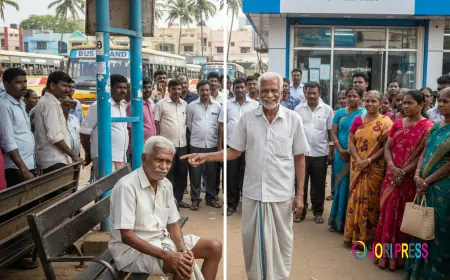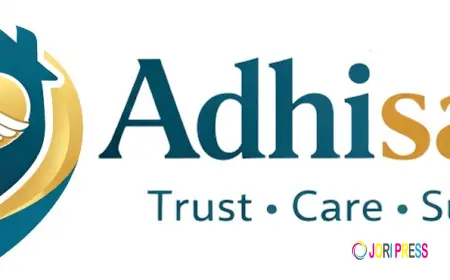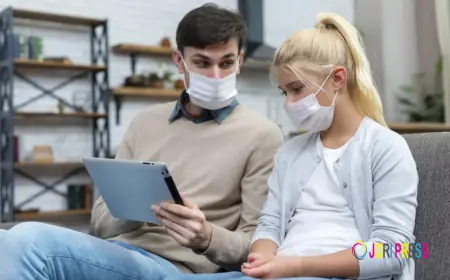Covid-19 Testing: Building Healthier Communities Through Awareness and Prevention

When the world first heard the word Covid-19, it sparked fear, uncertainty, and change. But as time passed, one thing became clear — knowledge is power, and Covid-19 testing became the foundation of that knowledge.
Today, even as vaccines and treatments are available, testing continues to play a critical role in keeping our communities safe, informed, and healthy. It’s not just about detecting a virus; it’s about building a culture of responsibility and care for one another.
The Role of Covid-19 Testing in Public Safety
Covid-19 testing has always been more than a medical procedure. It’s a public health strategy — a way to detect infections early, stop the spread, and keep vulnerable individuals protected.
Every time someone gets tested, it helps prevent potential outbreaks. From schools to offices, airports to nursing homes, testing ensures that daily life can continue with confidence.
Key reasons why testing remains essential:
-
Early detection saves lives. Identifying infections early helps ensure prompt care and reduces the risk of severe illness.
-
Testing prevents community transmission. A positive test means isolation and caution — stopping further spread.
-
It builds trust. Regular testing in shared environments reassures everyone that health is a collective priority.
-
It supports data-driven decisions. Public health officials depend on testing data to understand infection patterns and guide safety policies.
In short, every test contributes to a safer tomorrow.
Understanding the Covid-19 Testing Process
Covid-19 testing involves detecting whether a person is currently infected with the virus or has developed antibodies after exposure. The process is simple and usually quick, involving the collection of a nasal or saliva sample.
Here’s how it typically works:
-
Sample Collection – A healthcare provider collects a nasal swab or saliva sample.
-
Laboratory or Rapid Analysis – The sample is tested using specialized equipment.
-
Result Notification – Results are provided within minutes (for rapid tests) or a day or two (for PCR tests).
Accuracy and timing matter. Testing too early after exposure may lead to false negatives, so experts recommend testing a few days after possible contact or symptom onset.
Types of Covid-19 Tests
There are several ways to test for Covid-19, each designed for different needs.
1. PCR Test
This is the most accurate method, capable of detecting even small amounts of viral material. PCR tests are often required for medical and travel documentation.
-
Turnaround Time: 24–48 hours
-
Ideal For: Confirming infections and official reports
2. Rapid Antigen Test
A convenient, fast, and widely used test that gives results in minutes.
-
Turnaround Time: 15–30 minutes
-
Ideal For: Quick screening at home or before events
3. Antibody Test
Unlike the other two, this test checks for past infection by detecting antibodies in the blood.
-
Turnaround Time: Within 24 hours
-
Ideal For: Determining immunity or previous exposure
Each type has its place, but all serve one mission — helping people make informed decisions about their health.
When You Should Get Tested
While testing was once mainly for those showing symptoms, today it’s a proactive step anyone can take.
You should consider getting tested if:
-
You have symptoms such as fever, sore throat, or cough.
-
You’ve been exposed to someone who tested positive.
-
You’re planning to travel or attend a public event.
-
You work in healthcare, education, or customer-facing roles.
-
You are caring for someone vulnerable or elderly.
Testing even when you feel fine helps catch silent infections — especially important since many people remain asymptomatic but contagious.
How Covid-19 Testing Protects Families and Workplaces
Families and workplaces are two of the most common environments for transmission. One infected individual can unknowingly expose many others in close settings.
Regular Covid-19 testing can:
-
Protect elderly or immunocompromised family members.
-
Prevent outbreaks in offices or schools.
-
Minimize work disruptions by identifying cases early.
-
Encourage transparency and a sense of shared responsibility.
Some employers have even integrated testing into their wellness programs, providing free on-site testing to keep staff safe and productive.
At-Home Testing: Convenience at Your Fingertips
At-home Covid-19 tests have transformed how people manage their health. Instead of visiting a clinic or lab, individuals can now check their status in the comfort of their homes.
Most kits provide:
-
A nasal swab or saliva collection tool
-
A simple step-by-step process
-
Results in under 20 minutes
These tests are especially useful before gatherings, travel, or returning to work. They empower people to act responsibly without inconvenience or delay.
Covid-19 Testing and Travel
Even as global travel resumes, testing remains a standard requirement in many destinations. Airlines, border authorities, and cruise lines often ask for proof of a recent negative Covid-19 test before allowing passengers to board or enter a country.
Travel-related testing helps prevent cross-border transmission and ensures that journeys are safe for everyone involved. It also gives travelers peace of mind, knowing they are not putting others at risk.
When planning travel, always check the latest testing requirements, as they can vary by destination and airline policy.
The Connection Between Testing and Public Health Data
Every test result adds to the bigger picture. Public health agencies use testing data to track trends, predict outbreaks, and allocate resources efficiently.
Testing data helps answer key questions such as:
-
Where are infections increasing?
-
Which age groups are most affected?
-
How effective are current prevention measures?
This information allows governments and health systems to respond quickly, adjust policies, and prevent larger outbreaks.
In short, testing is not just personal — it’s collective. It’s a small act with a huge impact.
Accessibility and Affordability
One of the best improvements over time has been the accessibility of Covid-19 testing. It’s now available in hospitals, pharmacies, community health centers, and even mobile testing units.
Many organizations offer free testing to ensure everyone can get tested regardless of income. At-home test kits have also become more affordable, allowing individuals to test frequently when needed.
This widespread accessibility has made Covid-19 testing a routine part of modern healthcare.
How Testing Builds Awareness and Confidence
Testing helps normalize discussions around health and personal responsibility. By making testing routine, communities learn to act with care and empathy.
When people know their status, they can make informed choices — staying home when sick, protecting others, and taking the right precautions. That awareness builds collective confidence and keeps public spaces functioning safely.
Moving Forward with Responsibility
While Covid-19 may never fully disappear, we can manage it through smart practices — and testing remains at the heart of that strategy.
It helps prevent large outbreaks, reassures the public, and supports recovery efforts. By continuing to get tested when necessary, we maintain the balance between normal life and safety.
Testing is not about fear; it’s about empowerment. It gives people control over their choices and the ability to protect those around them.
Conclusion
Covid-19 testing has proven that knowledge saves lives. From early pandemic days to today’s normal routines, it continues to serve as a key tool in safeguarding health, preventing spread, and maintaining public trust.
As we move forward, regular and responsible testing will remain an integral part of global wellness.
So, the next time you’re unsure — whether it’s before traveling, visiting loved ones, or attending a gathering — remember that taking a Covid-19 test is a small step with a powerful purpose: protecting yourself, your family, and your community.
Covid-19 testing is more than a medical act — it’s a sign of care, responsibility, and unity in the face of change.
Would you like the next blog to focus on “Covid-19 Testing for Schools and Children” — explaining the importance of testing in classrooms, child safety, and parental awareness?
What's Your Reaction?
 Like
0
Like
0
 Dislike
0
Dislike
0
 Love
0
Love
0
 Funny
0
Funny
0
 Angry
0
Angry
0
 Sad
0
Sad
0
 Wow
0
Wow
0


















































